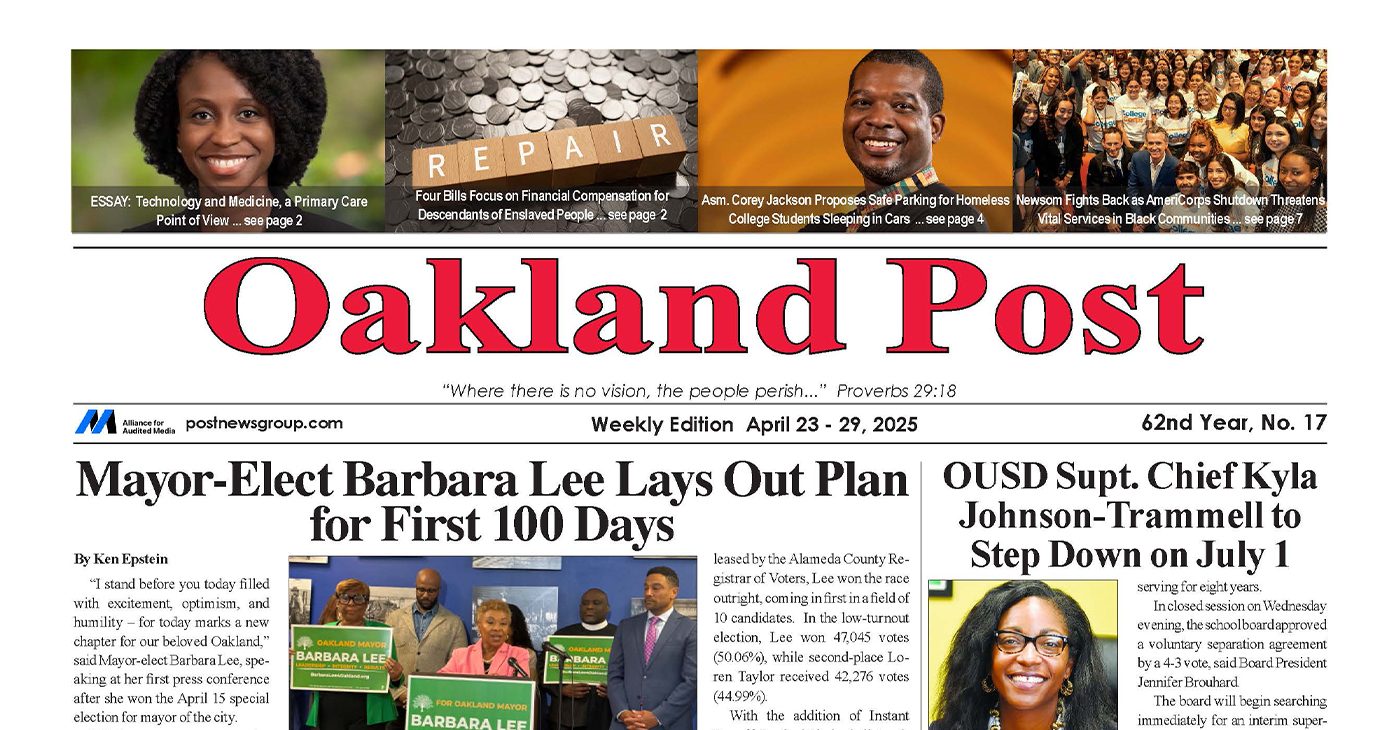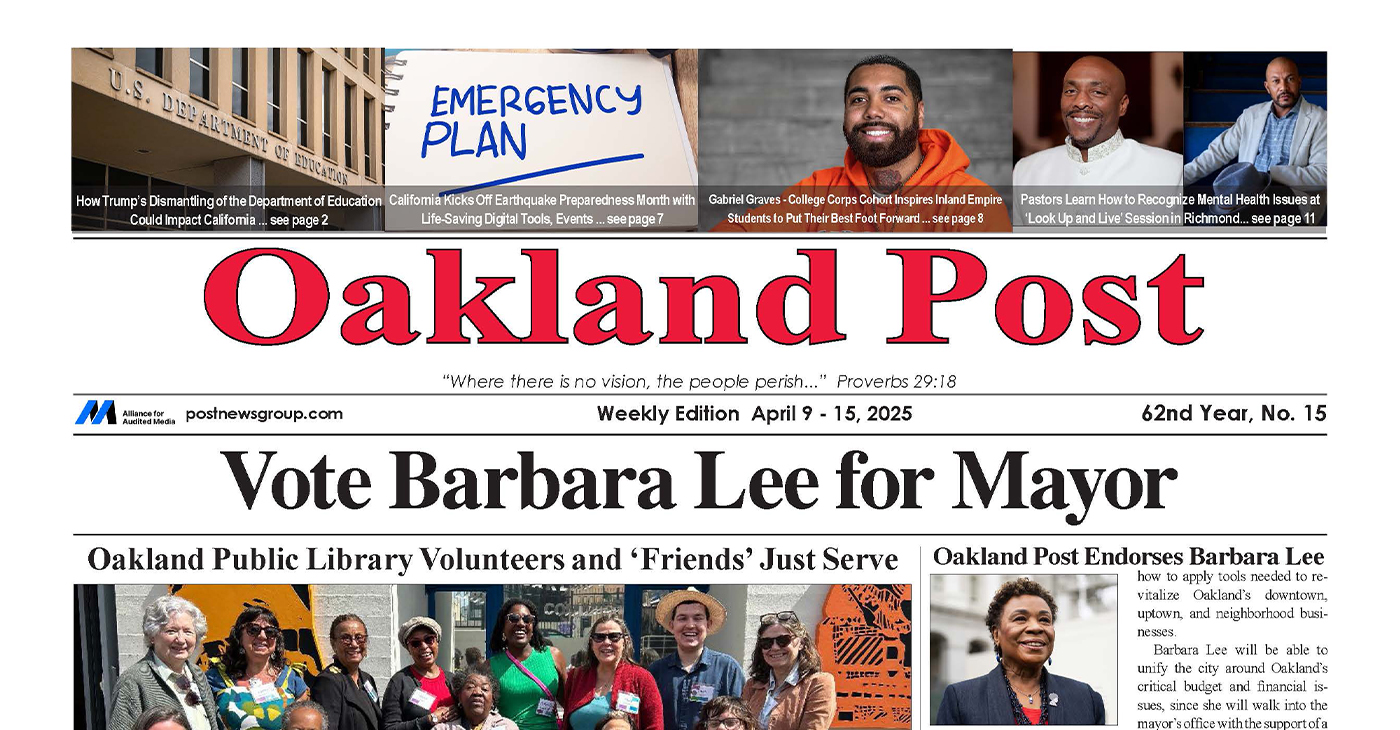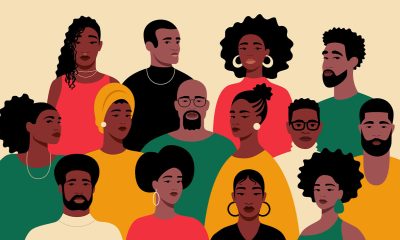Politics
Black Motorist’s Fatal Shooting: Outcry Over Police Tactics

In this April 4, 2015, frame from dashboard video provided by the North Charleston Police Department, Patrolman Michael Thomas Slager stands by Walter Lamer Scott’s car during a traffic stop in North Charleston, S.C. The video captures the moments leading up to a fatal shooting that has sparked outrage as the latest example of a white police officer killing an unarmed black man. Slager has been fired and charged with murder. (AP Photo/North Charleston Police Department)
JEFFREY COLLINS, Associated Press
MITCH WEISS, Associated Press
NORTH CHARLESTON, South Carolina (AP) — As its population surged in the last decade, South Carolina’s third-largest city fought rising crime through aggressive policing. But North Charleston’s police department lost the respect of many black residents in neighborhoods they blitzed, and now many are upset after the fatal shooting of an unarmed black motorist by a white officer.
Police in North Charleston used computers to track the neighborhoods where crime was on the rise, then sent waves of officers to patrol and conduct traffic stops, looking for offenders and letting drivers know they were cracking down. By the numbers, the tactics worked: every major category of crime, from murder to burglary to robbery to rape all fell significantly from 2007 to 2012, the last year for which statistics are available.
But anger is surfacing as civil rights leaders are demanding a full U.S. Justice Department investigation of the North Charleston force. The fatal shooting of Walter Scott as he fled after a traffic stop Saturday stirred outrage around the U.S., but people in North Charleston said they weren’t surprised.
“If the image of the city is more important than the lives of their citizens, there is going to be a problem,” said Dot Scott, president of the Charleston branch of the NAACP civil rights group. She’s unrelated to the slain motorist.
The U.S. Justice Department is conducting a parallel investigation with a local prosecutor into whether there were civil rights violations in the killing of Walter Scott. The NAACP would like that expanded to a full probe of whether racism and lack of respect for civil rights is pervasive through the entire department — similar to the federal agency’s probe after the fatal shooting of an 18-year-old unarmed black man by a white officer in Ferguson, Missouri.
With just over 100,000 people, North Charleston grew by nearly 16,500 people or about 20 percent from 2000 to 2010. More than half of its residents are minorities, mostly African-Americans. About 28 percent of its families make less than $25,000 a year.
For years, it battled an economic slump caused by the mid-1990s closing of the Charleston Naval Base on the city’s waterfront. For decades, city fortunes were tied to the base, where 38,000 people worked in the late 1980s.
But the city had plenty of land and proximity to next door Charleston, an affluent city popular with tourists. North Charleston has since bounced back, largely because of a huge investment by Boeing, which has a 787 aircraft manufacturing plant in the city.
Now North Charleston reaches from upscale subdivisions of $700,000 homes near the banks of the Ashley River to the older, impoverished black neighborhoods near the old naval base.
And those poor and black residents have learned to band together and be cautious around a police force that is nearly 80 percent white. Several residents around the city this week told the same story about what they do when an officer turns on the lights to pull them over. They said they immediately call a friend to see if they are nearby and can walk over to be a witness to a traffic stop. If no one is close, the phone is kept on so the person on the other end can listen, just in case.
Blacks were routinely putting their hands in the air when police confronted them for years before “Hands up, Don’t shoot” became a slogan in the wake of the death of Michael Brown in Ferguson, said 25-year-old Robert Blanton.
He said he has been stopped plenty of times for simply walking around his neighborhood after dark.
“I wonder — do they do that to whites walking in their neighborhood?” Blanton said.
The police department has refused to talk about its crime-fighting strategies since Scott was killed and officer Michael Slager was charged with murder, saying they want to wait until after Scott’s funeral on Saturday out of respect for his family.
But in a 2012 article in The Post and Courier of Charleston, then-Police Chief Jon Zumalt justified his more aggressive approach by saying it ensured people were obeying the law. And even if traffic stops didn’t lead to arrests, it got the word out that North Charleston was serious about fighting crime, he told the newspaper, which reported traffic stops in the city increased by about 3,000 to nearly 64,000 in 2011.
Numbers gathered by the state back that up. North Charleston had 26 murders in 2007 and 13 murders in 2012. The number of robberies in that five-year span fell 66 percent, while the number of burglaries dropped 29 percent.
Copyright 2015 The Associated Press. All rights reserved. This material may not be published, broadcast, rewritten or redistributed.
Activism
Oakland Post: Week of April 23 – 29, 2025
The printed Weekly Edition of the Oakland Post: Week of April 23 – 29, 2025

To enlarge your view of this issue, use the slider, magnifying glass icon or full page icon in the lower right corner of the browser window.
Activism
Oakland Post: Week of April 16 – 22, 2025
The printed Weekly Edition of the Oakland Post: Week of April 16 – 22, 2025

To enlarge your view of this issue, use the slider, magnifying glass icon or full page icon in the lower right corner of the browser window.
Activism
Oakland Post: Week of April 9 – 15, 2025
The printed Weekly Edition of the Oakland Post: Week of April 9 – 15, 2025

To enlarge your view of this issue, use the slider, magnifying glass icon or full page icon in the lower right corner of the browser window.
-

 Activism4 weeks ago
Activism4 weeks agoOakland Post Endorses Barbara Lee
-

 Activism4 weeks ago
Activism4 weeks agoOakland Post: Week of March 28 – April 1, 2025
-

 Activism3 weeks ago
Activism3 weeks agoOakland Post: Week of April 2 – 8, 2025
-

 #NNPA BlackPress3 weeks ago
#NNPA BlackPress3 weeks agoTrump Profits, Black America Pays the Price
-

 Activism2 weeks ago
Activism2 weeks agoOakland Post: Week of April 9 – 15, 2025
-

 #NNPA BlackPress3 weeks ago
#NNPA BlackPress3 weeks agoHarriet Tubman Scrubbed; DEI Dismantled
-

 #NNPA BlackPress3 weeks ago
#NNPA BlackPress3 weeks agoTrump Targets a Slavery Removal from the National Museum of African-American History and Culture
-

 #NNPA BlackPress3 weeks ago
#NNPA BlackPress3 weeks agoLawmakers Greenlight Reparations Study for Descendants of Enslaved Marylanders


























































